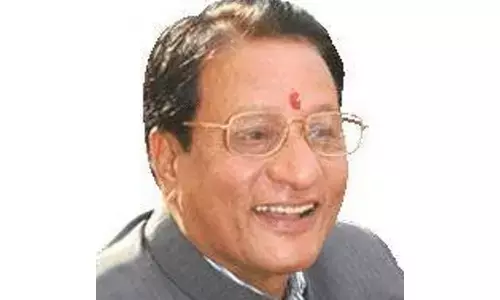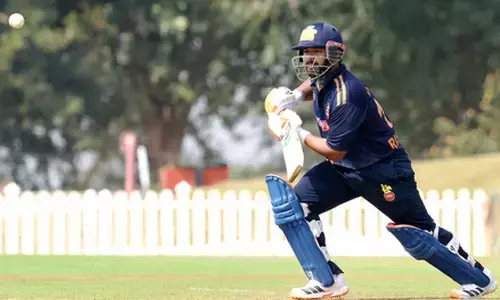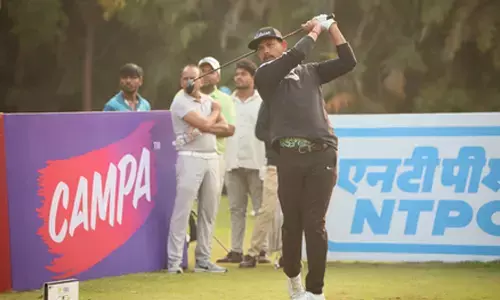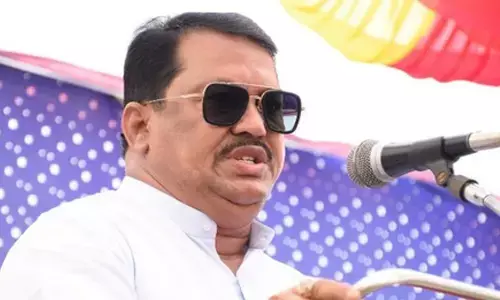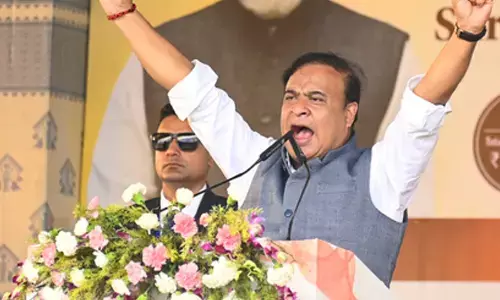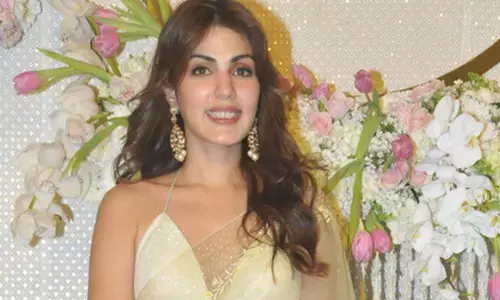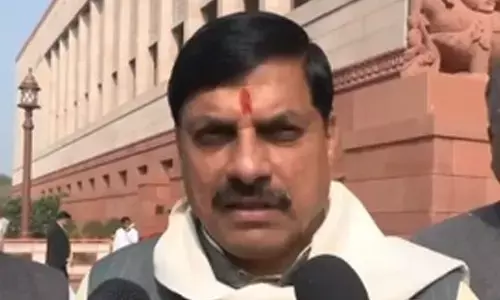Abdul Kalam ignited minds, touched lives
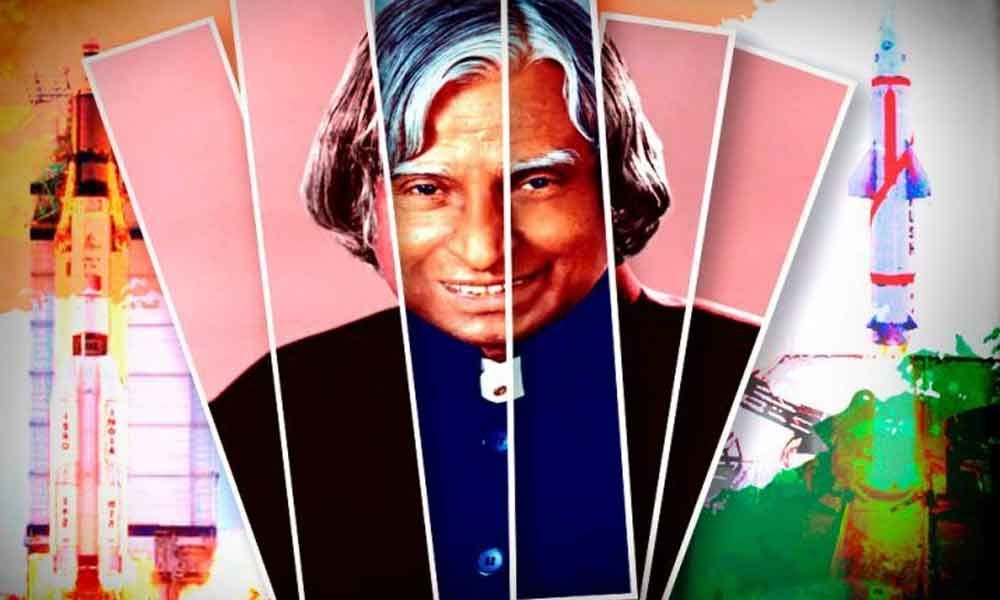
Every year on July 27, we fondly remember former President, Bharat Ratna Avul Pakir Jainulabdeen Abdul Kalam, generally known as Dr. A.P.J. Abdul Kalam
Every year on July 27, we fondly remember former President, Bharat Ratna Avul Pakir Jainulabdeen Abdul Kalam, generally known as Dr. A.P.J. Abdul Kalam who was an aerospace scientist and a phenomenal teacher served as the 11th President of India from 2002 to 2007, and widely referred as "People's President".
Dr.Kalam collapsed while delivering a lecture at Indian Institute of Management (IIM)-Shillong and died from an apparent cardiac arrest on July 27, 2015. Kalam was known as the missile man of India for his immense contribution in the field of aeronautics. Here are some amazing lesser known things that made Dr. Avul Pakir Jainulabdeen Abdul Kalam an extra ordinary man.
APJ Abdul Kalam was born on October 15, 1931, in Tamil Nadu's Rameswaram. Kalam at the age of five started selling newspapers to help his father and support the family. He did this job in the evenings after school.
Initially, Dr Kalam was working at the Defence Research and Development Organisation (DRDO) has rejected a proposal to place broken glass pieces on the walls of the institution to prevent break-ins. Kalam feared that broken glass might hurt birds that perched on the walls.
Kalam on his part also failures in his life, actually APJ Abdul Kalam want to become a fighter pilot, as he failed to bagged the ninth position among 25 candidates and was not recruited, since only eight slots were available.
Being a President of India, Dr Kalam donated his entire salary to a trust called PURA (Providing Urban Amenities to Rural Areas) founded by him. He said that the government would take care of him till his last breath as he became the President of India, so there was no harm in donating his full salary.
Impact on students
Dr. A.P.J. Abdul Kalam achieved outstanding success from humble beginnings. The story of his remarkable life is known to every Indian schoolchild.
Given our societal attitudes and lack of access to quality education, it is extremely difficult for Indian children not born to privilege to fulfil their potential and make a mark in life.
Millions in India saw in Kalam the hope of fulfilling aspirations and achieving eminence in their chosen field. He kept urging young Indians to break out of the shackles of poverty and tradition, to dream big, and to work hard to fulfil their aspirations.
And he always linked individual aspirations with national greatness. It is this consistent articulation of individual growth with public good that has left an enduring impact on most Indians, particularly students and youth.
♦ Dr. Kalam is known as the father of Indian Missile Technology and has played a prominent role in India's 1998 nuclear weapons tests.
♦ He brought dignity to whatever he did. Even politics!
♦ Before becoming the president, Dr. Kalam worked as an Aerospace Engineer with DRDO and ISRO. He was called the "Missile Man" of India.
♦ Dr. Kalam was much more than a political figure. He was a scientist, writer, inspirational speaker and motivational figure.
♦ Dr. Kalam's infectious personality had not just inspired Indians but also people across the globe.
♦ Kalam was nominated for Youth Icon of the Year award by MTV in 2003 and 2006. His age was 73 and 76 respectively then.
♦ In 1998, he along with cardiologist Dr Soma Raju developed a low-cost coronary stent. It was later named 'Kalam-Raju Stent' in their honour.
♦ Dr. Kalam had received several awards and recognition for his extra ordinary contribution to scientific research and modernization of defense technology in India.
♦ Dr. Kalam was a great colleague too and went an extra mile for his co-workers.
♦ When Dr. Kalam first moved to Rashtrapati Bhawan, he asked all luxurious rooms to be locked up as he didn't want to use them.
♦ Dr. Kalam was a great inspiration to many, especially kids, and always inspired them to dream big and achieve great goals in life.
♦ Dr. APJ Abdul Kalam wrote 15 books in total out of which the most read and widely published works of his writings were Wings of Fire, Ignited Minds, Vision 2020 and many more inspiring writings.
♦ Dr. APJ Abdul Kalam was also a Veena player and was filled with energy. He loved students and died doing what he loved the most: spending time with students and being among them.
♦ The missing place of Dr. Kalam can never be filled but his inspiring words will forever be with us and inspire us to do more. From bunking classes to his take on failure, here are some quotes from him to live your life by.
On memories
Sometimes it's better to bunk a class and enjoy with friends, because today when I look back, marks never make me laugh, memories do.
On hard work
If you want to shine like a sun, first burns like a sun.
On equal opportunity
All of us do not have equal talent, but all of us have equal opportunity to develop our talent.
On failure
Don't read success stories, you will only get a message. Read stories of failure and you will get ideas to succeed. If you fail, never give up because F.A.I.L means "First Attempt in Learning".
On habits
You cannot change your future, but you can surely change your habits. And surely, your habits can change your future.
On work ethic
If you salute your work, you don't have to salute anybody. But if you pollute your work, you will have to salute everybody.
On dreams
Dreams are not what you see in sleep. They are the things that do not let you sleep.
Gudipati Rajendera Kumar, Hyderabad








